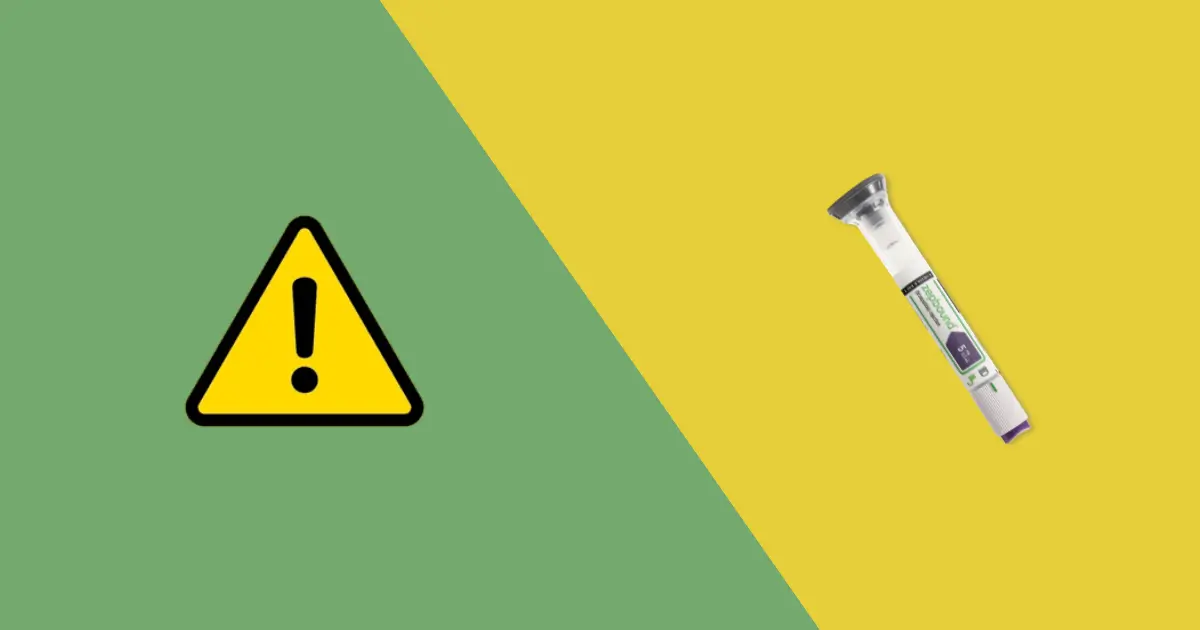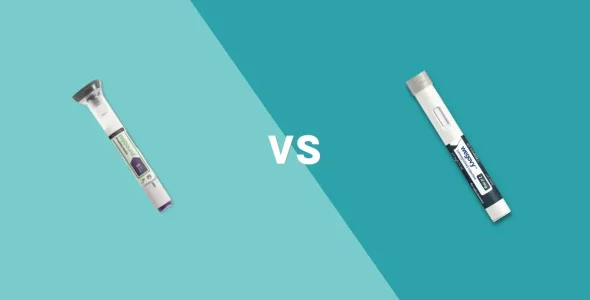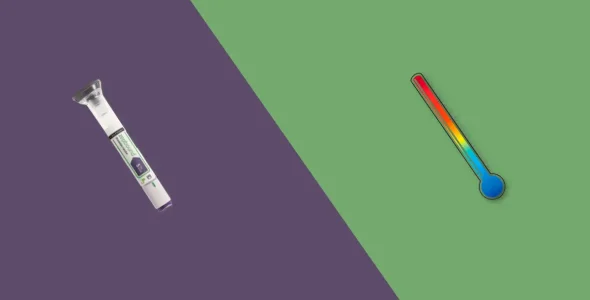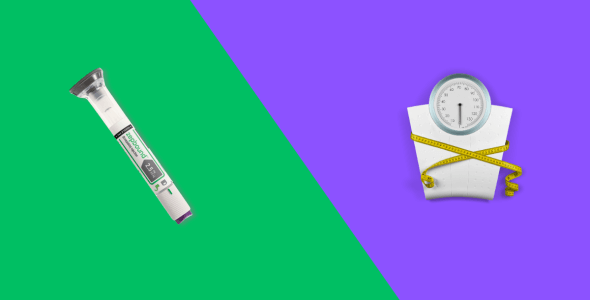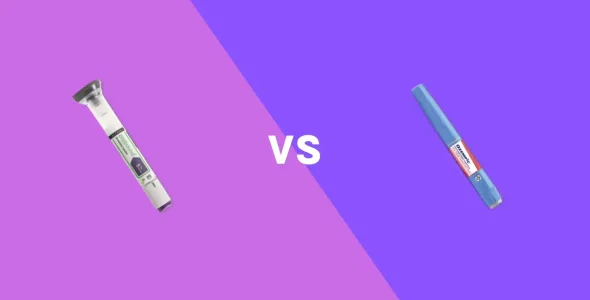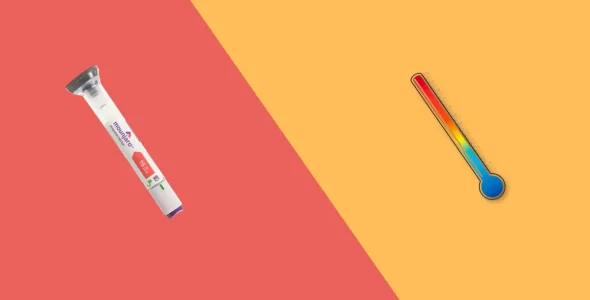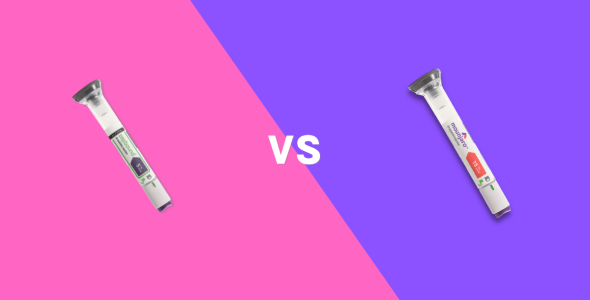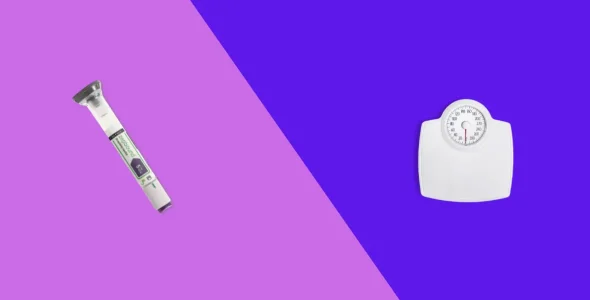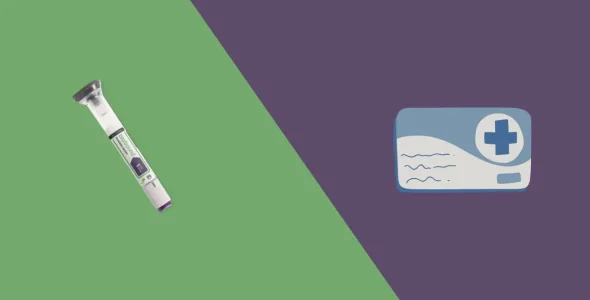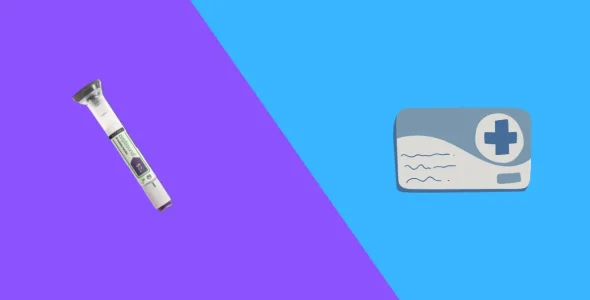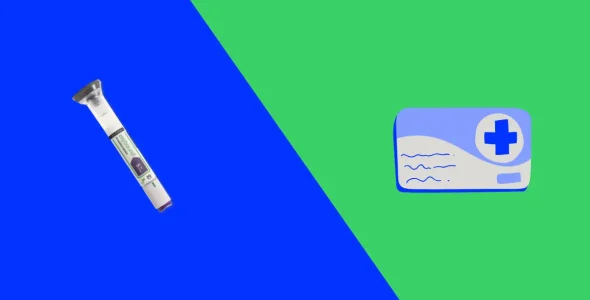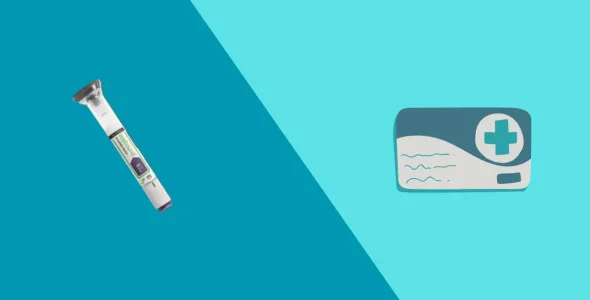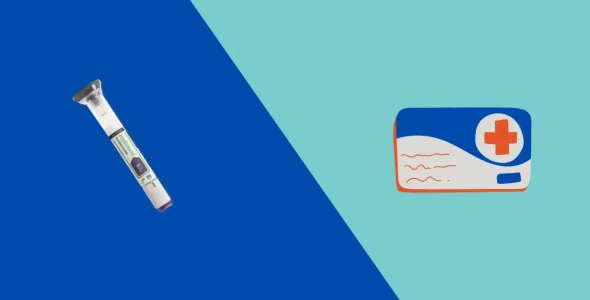Zepbound side effects and how to avoid them
Key highlights
- Gastric-related side effects like nausea, vomiting, and diarrhea are common with Zepbound use. Sometimes, individuals might also experience serious side effects like kidney problems, hypoglycemia (low blood sugar), changes in vision, gallbladder issues, inflammation of the pancreas, thyroid tumors, and depression.
- Zepbound can cause serious allergic reactions, so you must mention your allergies to your physician before starting the medication.
- Dietary modifications can help prevent common side effects of Zepbound, and serious side effects must be reported to a healthcare provider immediately. Do not stop taking the medicine unless the doctor suggests or you experience a severe allergic reaction.
Besides Mounjaro (tirzepatide) , Ozempic, and Wegovy (semaglutide) for body weight management, there’s another addition to this popular class of drugs as of 2024: Zepbound.
Zepbound has shown promising results in weight loss and management, but patients often complain of common side effects such as gastric-related side effects like nausea, diarrhea, and vomiting. If you have been feeling uneasy after starting the medication, don’t worry; these side effects are common with the use of Zepbound. Some individuals also experience severe side effects, like allergic reactions, changes in vision, kidney problems, and pancreatic inflammation.
These side effects may be temporary and last anywhere from a few days to weeks. However, if you notice that the side effects last longer than that, are bothering you, or are becoming severe, make sure to seek medical advice from your doctor or pharmacist.
Learn more about the side effects of Zepbound and tips on what you can do to reduce or stop them.
What is Zepbound?
Zepbound (tirzepatide) is an FDA-approved drug prescribed for long-term weight management in obesity and type-2 diabetes. It helps lose body weight by reducing appetite and slowing down the movement of the stomach. Thus, patients feel fuller for a longer time, even after small, light meals.
Zepbound is prescribed to individuals with:
- A body mass index (BMI) of 30 or higher
- A body mass index (BMI) of 27 or higher with at least one weight-related condition like type 2 diabetes, high blood pressure, heart disease, high cholesterol, or obstructive sleep apnea
The active ingredient, tirzepatide, activates GIP (glucose-dependent insulinotropic polypeptide or gastric inhibitory polypeptide) and GLP-1 (glucagon-like peptide-1) hormone receptors. They regulate metabolism and delay gastric emptying, making you feel fuller for longer.
Zepbound comes in six doses (2.5mg, 5mg, 7.5mg, 10mg, 12.5mg, and 15mg) in single-dose pens for subcutaneous administration (similar to insulin pens).
Common Zepbound side effects
In double-blinded clinical trials of Zepbound against placebo (an inactive medication), nausea, diarrhea, vomiting, and constipation were reported as the most common side effects. Other digestive system-related side effects included abdominal pain and dyspepsia. However, most GI (gastrointestinal) side effects appeared on changing the dose of Zepbound; they subsided with continuous use as the body adjusted to the dosage.
Other side effects of Zepbound include injection site reactions, fatigue, hypersensitivity reactions, hair loss, GERD (Gastroesophageal Reflux Disease), dizziness, and hypotension (low blood pressure).
If the side effects prolong or worsen, you must call your doctor.
Nausea and vomiting
Nausea and vomiting are the most and second most common side effects of Zepbound, respectively. Usually, individuals experience these side effects when starting the medication or changing the dose.
Diarrhea
Diarrhea is among the top three reported side effects when using Zepbound. Like nausea, diarrhea improves over time as your body adjusts to the new dose. If left unattended, it can cause frequent watery stools, leading to dehydration.
Constipation
As Zepbound slows down bowel movement, some individuals might experience constipation, especially those with a sedentary lifestyle. It can lead to hard, infrequent, or difficult-to-pass stools. At the same time, individuals with gastroparesis are also recommended not to use Zepbound because of its mechanism of action.
Stomach (abdominal) pain
Abdominal pain is another common stomach problem when using Zepbound for weight loss. You might experience abdominal pain, abdominal tenderness, abdominal discomfort, pain in the lower abdomen, or dyspepsia (pain in the upper middle abdomen).
Indigestion
While indigestion is not as widely reported as vomiting, nausea, or diarrhea, some individuals might experience it. It feels full after eating, with stomach pain and a burning sensation.
Injection site reactions
As Zepboud is injected into the skin of your upper arm, stomach, or thigh daily, you might have injection site reactions like irritation, bruising, redness, pain, or itching. You must report severe reactions like swelling or persistent rash at the injection site to your doctor.
Feeling tired (fatigue or tiredness)
Fatigue is not as common a Zepbound side effect as the others mentioned above. Yet, some individuals mention feeling lethargic (tired) after administering Zepbound.
Allergic reactions
Though mild allergic reactions were not widely reported in Zepbound clinical trials for treating obesity, individuals allergic to the drug might experience it. Common symptoms of allergic reactions from Zepbound include itchiness, swelling, and redness.
Burping (belching)
Burping or belching is another of the gastrointestinal tract-related side effects of Zepbound. Delaying metabolism can cause a buildup of air in the esophagus, leading to belching. Some people also report burps with an unpleasant odor.
Hair loss
While hair loss is not among the most prominent side effects, clinical trials have shown evidence of hair loss with Zepbound use (more common in women than men). It has also been seen in clinical trials for other GLP-1 drugs. At the same time, it could be because of rapid weight loss, misuse of medication, or Zepbound use by an underweight individual.
Heartburn
Heartburn is a painful burning sensation from your stomach to your chest caused by acid reflux (acid travelling up from the stomach). It usually happens when you lay down after eating. You might also feel an acidic taste in your mouth from heartburn.
Serious Zepbound side effects
Besides common side effects, medicines, including Zepbound, might sometimes have serious side effects that can be life-threatening. These side effects are not so common, and less than 1% of people usually experience them during clinical trials. However, these side effects can have long-term consequences; they may lead to disabilities, permanent damage, cause birth defects, or even death.
Thus, it’s important to immediately report to your physician if you experience any of the following symptoms:
- Vision changes, sweating, and dizziness (especially in people with type 2 diabetes) could be symptoms of dangerously low blood sugar levels.
- Lump in your neck, shortness of breath, persistent hoarseness, and difficulty in swallowing can be signs of thyroid cancer.
- Abdominal pain for more than 24 hours may be a sign of gallbladder or pancreatic disease.
- Swelling, rash, or difficulty breathing may indicate a severe allergic reaction that needs immediate medical attention.
Thyroid tumors
While thyroid tumors are not among the most common side effects of Zepbound, they are the most serious; these tumors can be cancerous. So, do not ignore the symptoms of thyroid cancer, and get medical help immediately.
Inform your healthcare provider if you experience the following symptoms (of thyroid tumors) when using Zepbound:
- Dysphagia (difficulty in swallowing)
- Dyspnea (shortness of breath)
- Lump or mass in the neck
- Persistent hoarseness
Before starting Zepbound, make sure to tell your doctor if:
- You or any of your family have ever had a type of thyroid cancer called medullary thyroid carcinoma (MTC).
- You have Multiple Endocrine Neoplasia syndrome type 2 (MEN 2).
- Have had a serious allergic reaction to tirzepatide or any of the ingredients in Zepbound.
Due to the potential risk of tumors, doctors do not prescribe Zepbound to patients with these risk factors.
Serious allergic reactions
Sometimes, allergic reactions may occur when using Zepbound. People allergic to Zepbound, Mounjaro, Tirzepatide, or any of the ingredients in the product are suggested not to use it.
An allergic reaction from Zepbound may exhibit itself as:
- Rash
- Fever
- Itching
- Flushing
- Joint pain
- Rapid heart rate
- Stomach cramps
- Breathing issues
- Trouble swallowing
- Nausea or vomiting
- Dizziness or feeling of dizziness
- Swelling of the throat, lips, face, or tongue
- Swelling under the skin, especially in hands, feet, or eyelids
If you experience any of the symptoms when using Zepbound, stop using it immediately and seek medical advice.
Kidney problems (kidney failure)
Though vomiting is a common and less serious side effect of Zepbound, prolonged vomiting can lead to severe dehydration, which can damage your kidneys. At the same time, Zepbound increases the risk of kidney damage in people already suffering from a kidney injury. Thus, your doctor might not prescribe this medication if you have a kidney disease.
The symptoms of kidney damage from Zepbound include:
- Nausea
- Dark colored urine
- Shortness of breath
- Urinating less than usual
- Tiredness
- Confusion
- Seizures
Gallbladder problems
Gallbladder issues are among the least common side effects of Zepbound. Inflammation of the gallbladder and gallstones are the most prevalent gallbladder-related diseases when using Zepbound.
Symptoms of gallbladder disease include:
- Abdominal pain
- Jaundice (yellowing of skin or eyes)
- Fever
- Clay-colored stools
Inflammation of the pancreas (pancreatitis)
Other than the gallbladder, Zepbound may also cause inflammation of the pancreas, known as pancreatitis. It may also worsen your condition if you have pancreatitis. The following are signs of pancreatitis:
- Intense nausea
- Vomiting
- Severe pain in the upper part of your abdomen to your back
Low blood sugar (hypoglycemia)
Zepbound is often prescribed as a weight loss drug to patients with type 2 diabetes. However, the combination of Zepbound and insulin/ sulfonylureas can sometimes lead to hypoglycemia (low blood sugar). Clinical trials showed hypoglycemia in 4.2% of the Zepbound-taking population compared to 1.3% in the placebo group.
Signs and symptoms of hypoglycemia include:
- Light-headedness
- Shakiness
- Fast heartbeat
- Hunger
- Headache
- Weakness
- Blurred vision
- Sweating
- Confusion
- Irritability
You might not have all the symptoms at once but do not ignore them if you experience even some of them. Dangerously low blood glucose levels can be life-threatening.
Changes in vision
People with Type 2 diabetes who use Zepbound might develop diabetic retinopathy, which may cause blurriness, floaters, or dark spots in their vision. Their vision may worsen when they start the medicine or switch to a higher dose.
Depression or thoughts of suicide
A small percentage of people reported depression and suicidal thoughts during Zepbound clinical trials. Some people also experience unusual changes in mood and anxiety when taking the medication. However, the Food and Drug Administration (FDA) studies suggest no such correlation between the drug and depression or suicidal thoughts. The FDA is further evaluating the reports of suicidal thoughts in patients taking peptide-1 receptor agonists like tirzepatide.
If taking Zepbound makes you feel low or depressed, talk to a friend, or call 911 when having suicidal thoughts.
Does Zepbound cause long-term side effects?
Zepbound clinical trials have not reported long-term side effects, as most of them subside when the body adjusts to the new dose. However, serious side effects like kidney failure, pancreatic or gallbladder inflammation, or thyroid tumors may cause long-term issues. You must share your medical conditions (if any) with your doctor so they can determine if the medicine is safe for you.
How can I stop or reduce Zepbound side effects?
Zepbound side effects may be uncomfortable and difficult to tolerate for some people. If you’re experiencing discomfort and thinking of skipping the medication, we suggest reading to the end to find out how you can manage or stop the side effects of Zepbound.
Nausea, vomiting and upset stomach
Nausea and vomiting are the most common side effects of Zepbound when you start taking it. However, most users report a decline in the severity of nausea, vomiting, and disturbed GIT as their body adjusts to Zepbound. The following can be helpful in managing these side effects more effectively:
- Stay hydrated: Prolonged vomiting can cause dehydration and lead to kidney disease. Drinking 8 to 10 glasses of water helps you stay hydrated; you can also add ORS to the water to balance your electrolytes.
- Eat smaller meals: When taking Zepbound, you might want to eat meals like before, but you will feel fuller because of the medicine. Eating smaller meals promotes weight loss and prevents nausea from overeating.
- Avoid problematic foods: Monitor your diet properly and avoid foods that trigger nausea. Foods high in fat and spice are commonly seen to cause nausea and heartburn. Thus, it’s better to avoid them.
- Reduced dosage: If your healthcare provider starts with a medium dose of Zepbound and the side effects last longer, you can ask them to lower the dose and increase it gradually.
- OTC medicines: When nothing else works, you can use an anti-emetic (vomiting-stopping medicine). Consult your doctor or pharmacist for a suitable brand name suggestion.
Diarrhea
Changes in bowel movements caused by Zepbound can cause diarrhea, and changes in the dosage can worsen the problem. Dietary changes and hydration can help you feel better.
- Reduce fat intake: High-fat foods are difficult to metabolize and can worsen diarrhea; avoid spicy, high-fat, and deep-fried meals.
- Opt for a bland diet: Bland food may not sound great, but it can be helpful in managing diarrhea. Add rice, toast, and bananas to your diet to prevent watery stools.
- Drink water: Like vomiting, diarrhea dehydrates the body. Drink fluids like water, juices, and oral rehydrating solutions (ORS) to compensate for the loss of water and electrolytes.
Constipation
As Zepbound slows down bowel movement and stomach emptying, some people report constipation when they start taking the medicine. Users complain of hard, difficult-to-pass stools because of a longer digestion time. But you can prevent constipation with these simple lifestyle modifications:
- Add fiber to your diet: Not taking enough fiber is one of the major reasons for constipation. Eat high-fiber foods like whole grains, legumes, flax seeds, vegetables, and fruits.
- Drink enough water: Take at least 8 to 10 glasses of water daily for healthy gut movement and soft stools.
- Try home remedies: Prune and apple juice have been seen to promote bowel movement and improve constipation.
- Exercise: A sedentary lifestyle can also influence digestion, and regular physical activity can help manage constipation.
- Use laxatives: If nothing else works, try over-the-counter (OTC) laxatives for relief. Talk to your pharmacist or doctor about choosing the right laxative.
Injection site reactions
As Zepbound is injected subcutaneously into the abdomen, thigh, or upper arm, injection site reactions may occur. Usually people with sensitive skin or an improper administration technique experience reactions. You might have itching, redness, bruising, irritation, pain, or rash at the injection site.
- Inject room-temperature injection: Cold injections can sometimes be irritating and cause itching. Bringing the Zepbound injection to room temperature before administration can help reduce irritation.
- Alternate location of injection: Changing the site of injection every few days can also help prevent discomfort or irritation. Gently massage the area after administration.
- Use ice packs: Ice packs can help reduce pain and swelling on the injection site. You can also opt for a warm compress for relief after injecting Zepbound.
- Consult your doctor: Consulting your doctor can help determine the cause of the reaction. They may also show you the right injection technique to avoid a reaction in the future.
- OTC painkillers: If the pain does not go away, ask your doctor to suggest an OTC painkiller (like Tylenol).
Hair loss
Hair loss is a less common side effect of Zepbound, and women taking the medication complain of hair loss more than men. While it is also reported in clinical trials for other GLP-1 agonists, hair loss might result from rapid weight loss instead of the medicine’s side effects.
Treating hair loss in people using this weight loss drug requires a medical examination. Your doctor might suggest a blood test to see if hair loss is resulting from any nutritional deficiencies. Lab tests may also help identify if the reason behind the weight loss is another underlying condition, such as thyroid disease.
If the test results indicate nutritional deficiency, your healthcare professional will prescribe supplements to promote healthy hair growth and prevent further hair thinning.
When should you stop taking Zepbound?
Typically, doctors suggest you do not stop taking Zepbound because of common side effects, as they subside gradually. However, you must report your symptoms to the concerned healthcare professional to ensure they are safe for you, especially when the side effects do not go away on their own.
Moreover, you must not ignore side effects like severe abdominal pain, swelling or lump in the neck, vision changes, rash, and difficulty in breathing; stop the medication and reach out for medical advice and help.
There are no clinical trials regarding the safety of Zepbound during pregnancy and breastfeeding. The weight loss drug is also believed to interfere with birth control pills’ absorption in the body. Thus, your doctor will likely stop the medication in such situations. It is best to discuss it with your doctor so they can suggest the most suitable treatment option for you. You can also join Eli Lilly’s pregnancy registry to learn more about the safe usage of this medicine during pregnancy.
When should you contact your healthcare provider about side effects from Zepbound?
While most people experience the common side effects of Zepbound, you must not ignore any unusual changes in your body. Immediately contact your healthcare provider about symptoms related to a serious allergic reaction, hypoglycemia, thyroid tumors, and suicidal thoughts.
Talking to your doctor can also help you learn about the use of Zepbound and answer your concerns.
Bottom line
While Mounjaro (tirzepatide), Ozempic, and Wegovy (semaglutide) are widely known for their weight loss and management efficiency, Zepbound is a new addition to the weight management family. The active ingredient, tirzepatide, activates GIP (glucose-dependent insulinotropic polypeptide or gastric inhibitory polypeptide) and GLP-1 (glucagon-like peptide-1) hormone receptors. They regulate metabolism and delay gastric emptying, making you feel fuller for longer. However, Zepbound’s clinical trials reported some common and severe side effects of the medication, especially on increasing the dosage.
The most common side effects of Zepbound are gastric-related, including nausea, vomiting, diarrhea, constipation, indigestion, stomach pain, and belching. Other serious side effects include thyroid tumors, hypoglycemia, kidney problems, serious allergic reactions, changes in vision, depression, and pancreatic and gall bladder inflammation. You can reduce gastric-related side effects by dietary and lifestyle modifications, but serious side effects require medical attention.

